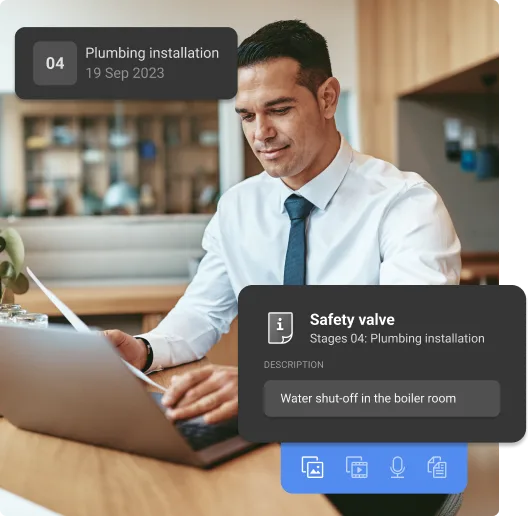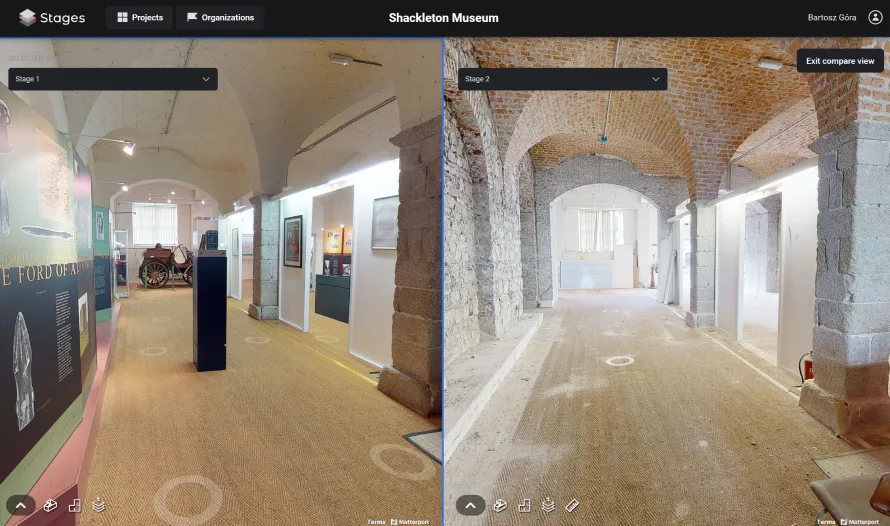Monetizing Digital Data as Added Value for Real Estate
In today’s world, technology permeates nearly every aspect of our lives, and the construction industry is no exception. Many processes that once required paper documentation can now be executed through digital solutions. One significant step toward the future is the digitalization of construction documentation. While this practice is not yet the standard, an increasing number of companies recognize the benefits of sharing such data. In this context, the sale of digital data becomes an added value for buildings, allowing developers who prioritize transparency to stand out in a competitive market.
Advantages of Digital Construction Documentation
Having comprehensive digital construction documentation is a significant move toward transparency and professionalism. The value of digital construction data lies not only in its ease of storage but also in its accessibility and functionality. Digital plans, designs, permits, reports, and any changes made during construction can be stored as files that are accessible almost instantly from anywhere in the world. In the age of digitalization, there is no longer a need to maintain large binders filled with papers. Furthermore, the ability to easily share this information with clients, architects, managers, and technical teams can prove invaluable during consultations or renovations.

Challenges Developers Face in Sharing Digital Documentation
Despite the numerous advantages, many developers remain hesitant to share digital data concerning their buildings. This reluctance may stem from fears of losing control over this information or potential risks associated with disclosing certain project details. For less transparent firms, sharing documentation may seem undesirable, as it could reveal deficiencies in the project or raise questions about quality. Unfortunately, a lack of transparency in this area can lead to a lack of trust among potential buyers, who often do not have complete knowledge of the building’s technical condition.

Benefits of Sharing Digital Documentation for Developers
Developers who choose to digitize their construction documentation gain several advantages that can provide a significant competitive edge:
-
Enhanced Transparency and Trust Building: Sharing digital construction data allows for full transparency in a developer's actions. This enables potential clients to check at any time on the progress of construction, any changes made to the project, and whether the building meets technical standards. Such an approach demonstrates the developer’s integrity and can help build a positive company image.
-
Convenience and Time Savings: Digital documentation is much easier to store and process. There is no need to manually sift through piles of paper; all relevant documents are organized and available in a digital system. Additionally, clients can easily access essential information, saving time for both themselves and the developer.
-
Improved After-Sales Service: In the event of maintenance or repair work following the sale of a property, digital documentation can provide crucial support. Familiarity with all project details, materials used, and intended technical solutions facilitates necessary repair actions.
-
Increased Value for Clients: Property seekers can appreciate a developer's offer of full access to construction documentation in digital form. This approach gives them a sense of control over their purchase and confidence that the building was designed and constructed to high standards. In today’s competitive real estate market, the value of digital documentation can be a key factor in a client’s decision-making process.
-
Alignment with Modern Standards: Companies investing in digitalization are keeping pace with contemporary trends in the construction industry. The use of digital tools and systems has become standard in many sectors, including construction. Developers who do not adapt to these changes may be perceived as outdated or less innovative.
Conclusion
The sale of digital data and the sharing of comprehensive construction documentation not only streamline developers’ workflows but also foster trust and loyalty among clients. While this practice has not yet become standard, developers who embrace it benefit from enhanced transparency and integrity, distinguishing their offerings in the marketplace. Digital construction documentation represents added value for buildings and may increasingly become a key element in purchasing decisions in the future.
